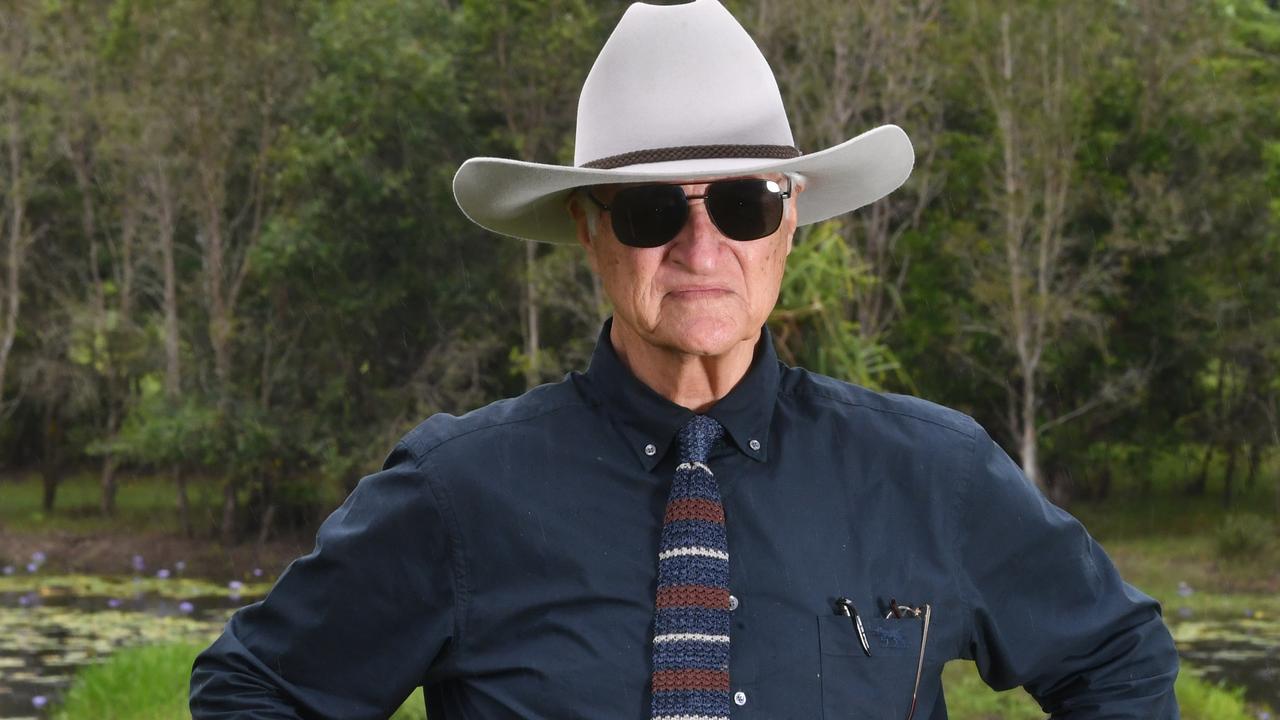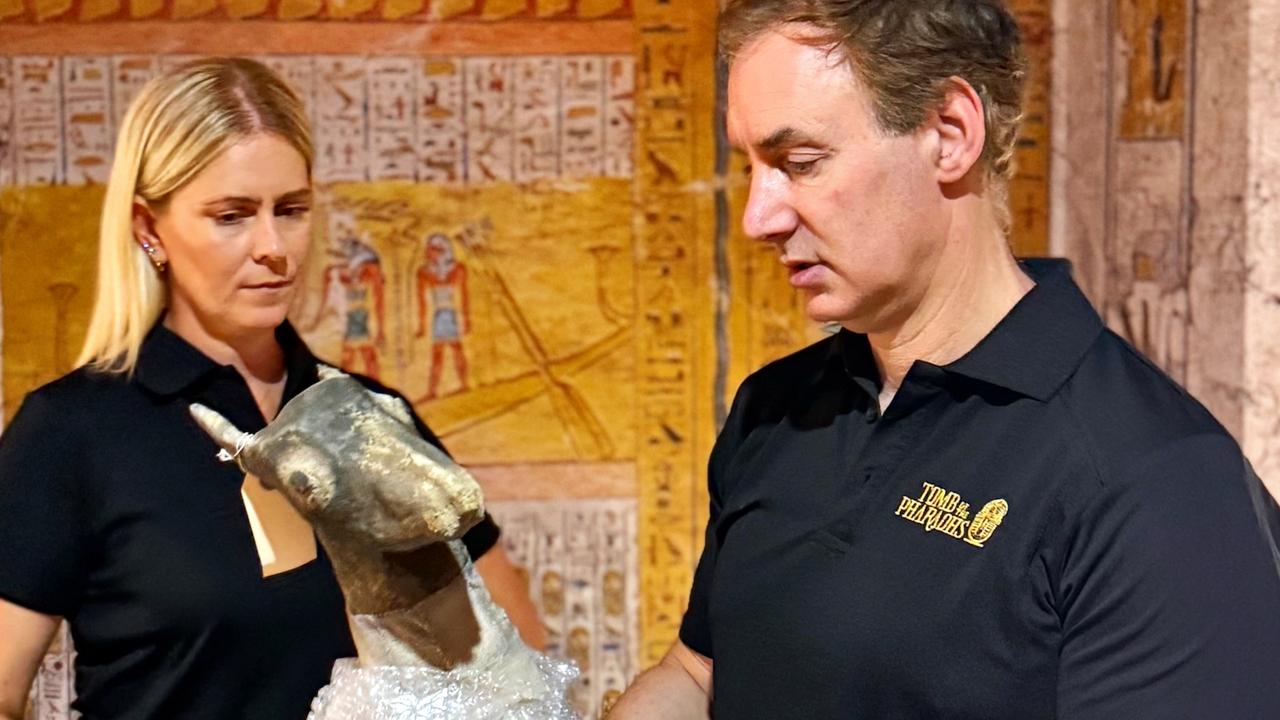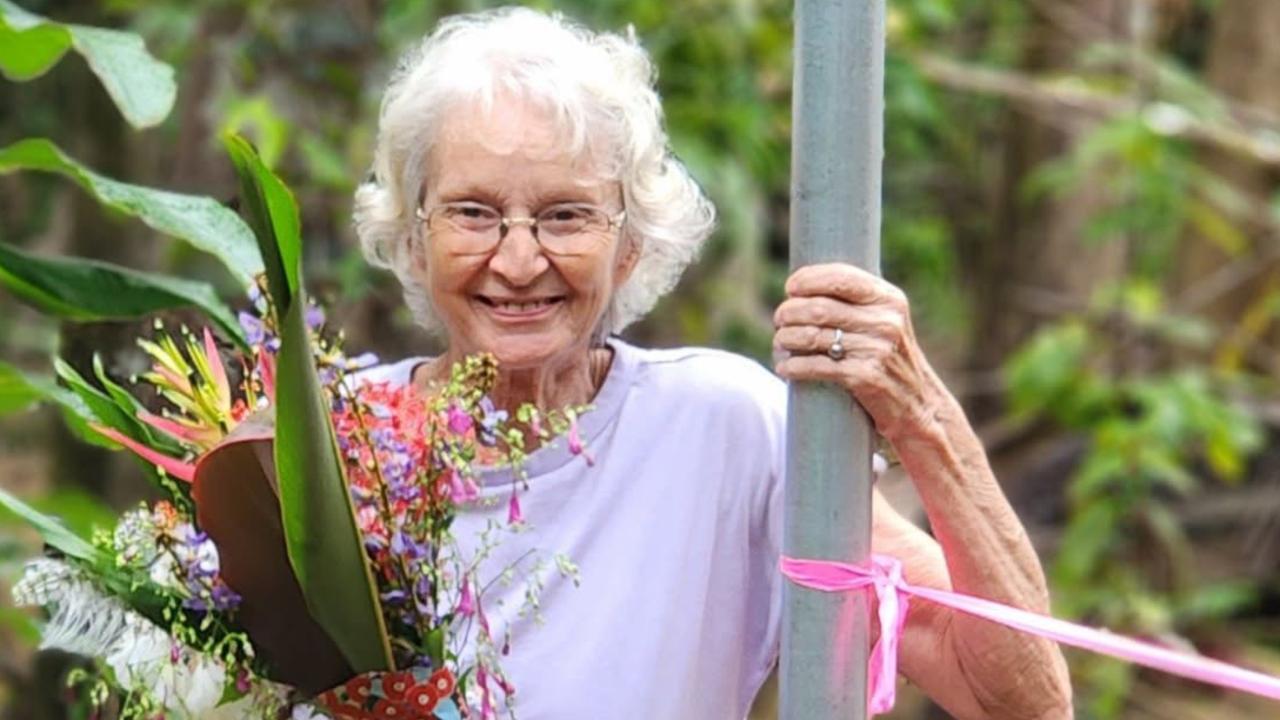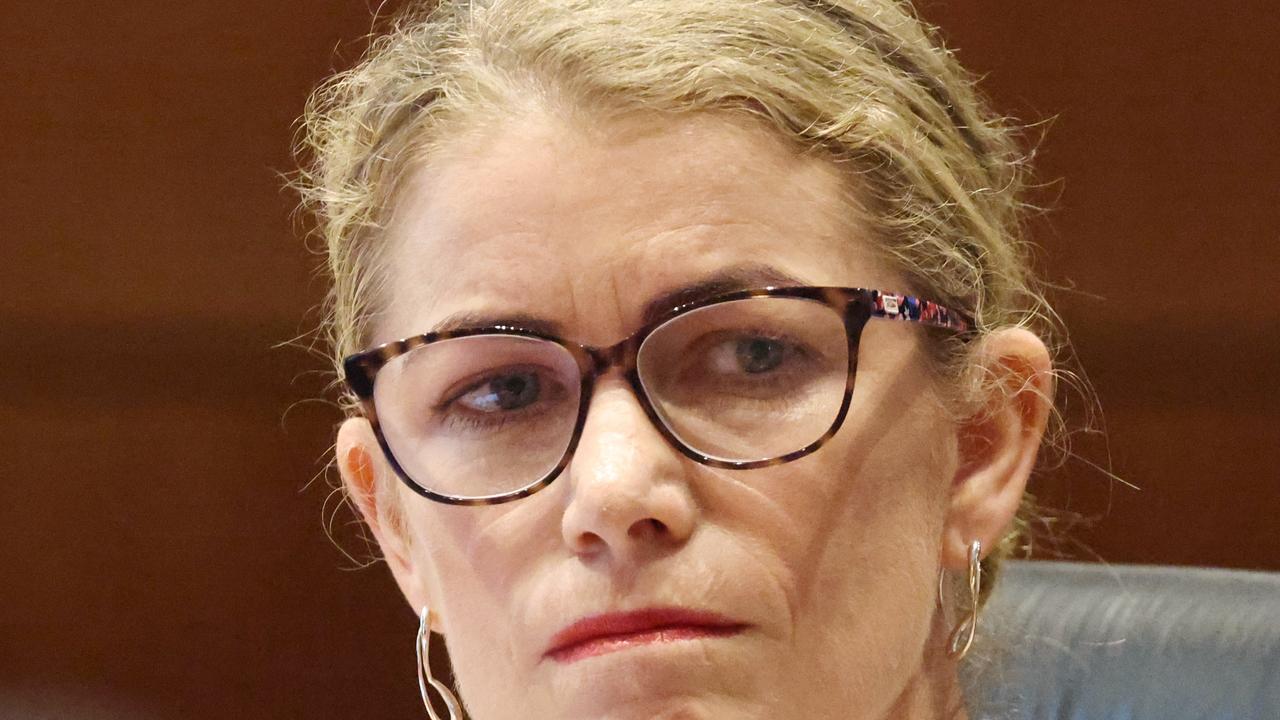Yidindji people commemorate 66,000 Indigenous people killed in colonial massacres
Yidindji elders have commemorated the 66,000 Indigenous people who were killed in colonial Queensland massacres at the ninth annual frontier wars and truth telling event.
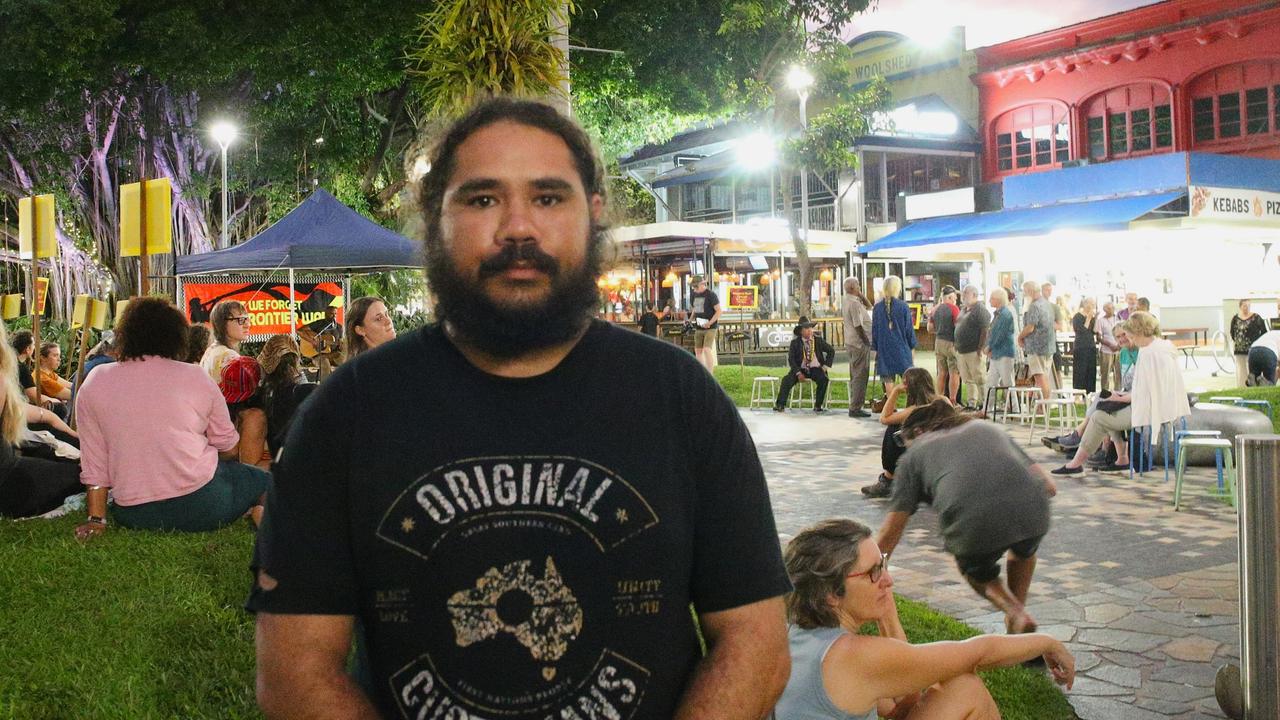
News
Don't miss out on the headlines from News. Followed categories will be added to My News.
Yidindji elders have commemorated the 66,000 Indigenous people who were killed in colonial Queensland massacres at the ninth annual frontier wars and truth telling event.
On Thursday the Cairns frontier wars memorial honoured First Nations people who lost their life in massacres, wars and instances of resistance to colonists, beginning in 1788 and ending as late 1934.
It’s estimated that 90 per cent of the pre-colonial Indigenous population were killed during the Frontier Wars.
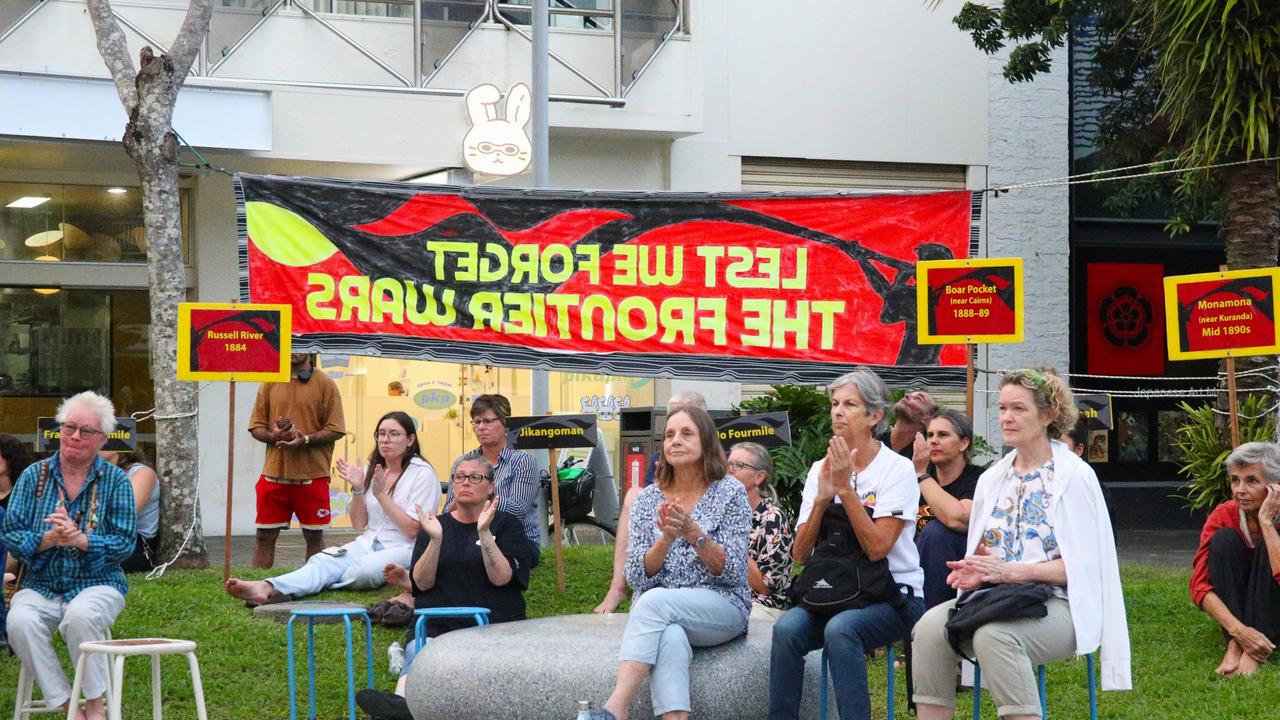
Yidindji woman Professor Henrietta Fourmile Marrie acknowledged the string of mass murders which took place around Cairns.
“In 1882 there was a massacre that had taken place at Mulgrave River and slowly crept to Skeleton Creek,” Ms Marrie said
“There were about 16 skulls that were put on spikes, the gruesome sight … these were the heads of our ancestors.
“They were taken then and placed in museums as relics of the past, because that’s what they thought of us, that we would soon be gone.
“In Queensland 66,000 Aboriginal people died during the massacres, compared to 63,000 men and women who fought in World War I.”
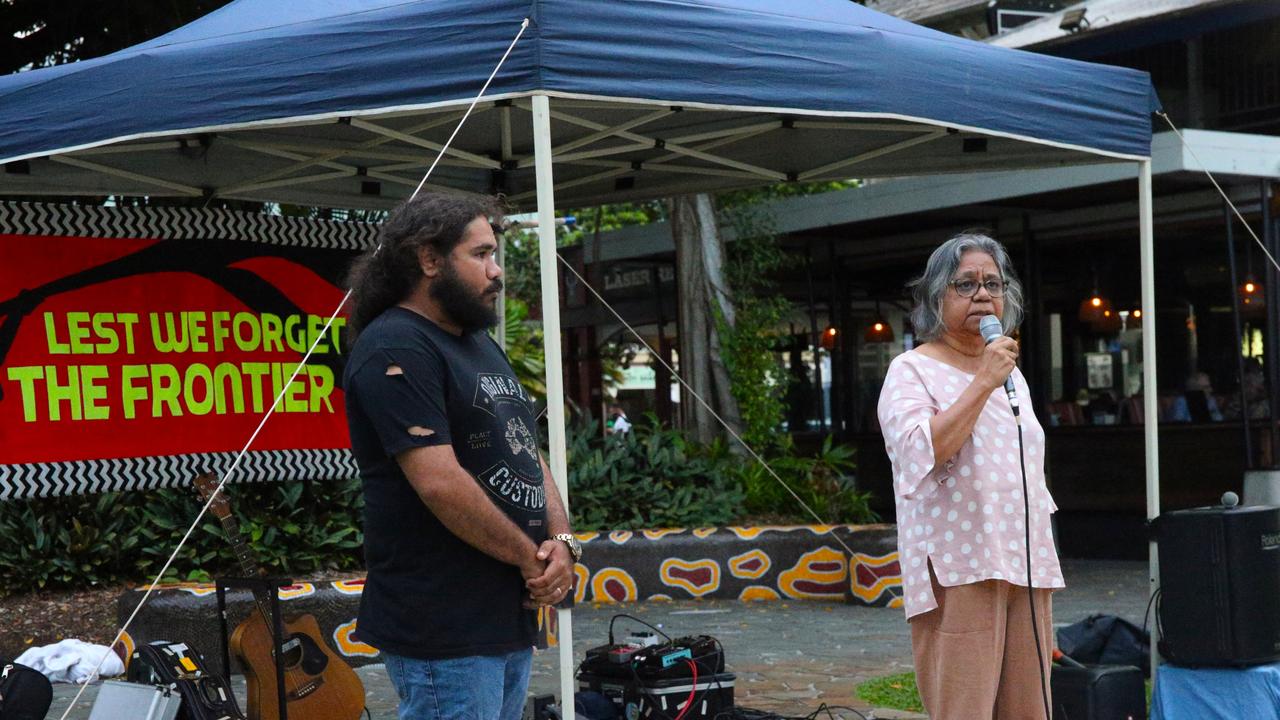
Professor Marrie said in 2025 the Yidindji people honoured their continued survival.
“Today we celebrate here in Gimuy, to remember our ancestors and these massacres that took place,” Ms Marrie said.
“Not just at Mulgrave but at Skeleton Creek and Four Mile Camp, as it was known, my grandfather’s country.
“We hold our head high and stand strong as people with those who want to stand with us.”
Ms Marrie’s brother is the late Gudju Gudju, who helped organise the first Gimuy Frontier Wars and Truth Telling Memorial in 2016.
Yidindji man and son of Gudju Gudju, Jiritju Fourmile, said carrying on the legacy of his ancestors was crucial to the survival of the Yidindji nation in Far North Queensland.

“This commemoration is not about looking back, it’s about acknowledging the truth of our shared past, no matter how uncomfortable it may be,” Mr Fourmile said.
“It’s about giving a voice to stories that were silenced, recognising the resilience of the world’s oldest continuing culture.”
Mr Fourmile said the commemoration was a step towards “a future built on truth”, and was an essential part of “not repeating the past.”
“It’s a very sombre feeling, reflecting back on the things that have happened to our old people, especially during the Frontier Wars,” he said.
“I feel like the frontier wars do get overshadowed by the Anzac commemoration services that they have, I’d love our people to be more celebrated when they do have those commemoration services.
“I think for us up in the Far North, we need more of a spotlight to be shone on the communities around here, and what happens with Indigenous lives up here.
“Commemorations like this one is just the first step.”
Originally published as Yidindji people commemorate 66,000 Indigenous people killed in colonial massacres



